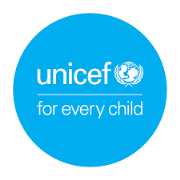Unicef 
At Nansen Primary School, we are committed to creating a nurturing and inclusive environment where every child feels safe, respected, and valued. As part of this commitment, we aim to implement the principles of the United Nations Convention on the Rights of the Child (UNCRC) into our school community. This decision is driven by our belief in the importance of promoting the well-being, development, and voice of every child under our care.
By embedding the UNCRC articles into our ethos and daily practices, we seek to:
- Foster a Rights-Respecting Culture:
We want all of our children to understand their rights and responsibilities, enabling them to respect not only their own rights but also the rights of others. This will help cultivate an atmosphere of mutual respect and understanding, where diversity is celebrated, and equality is championed. - Empower Children’s Voices:
The UNCRC emphasises a child’s right to express their views freely on matters affecting them (Article 12). At Nansen Primary, we believe that giving children the opportunity to be heard is essential for their growth and confidence. We are committed to promoting pupil leadership, participation in decision-making, and creating spaces where their voices are actively listened to and respected. - Promote Well-being and Development:
The convention’s focus on the holistic well-being of children aligns with our school’s mission to support not only academic achievement but also social, emotional, and mental health. Articles such as the right to education (Article 28) and the right to play (Article 31) remind us of the importance of a well-rounded approach to child development. - Encourage Global Citizenship:
Implementing the UNCRC aligns with our goal of raising responsible and compassionate global citizens. By understanding their rights and the rights of others, our children will be better equipped to engage with global challenges, such as inequality, injustice, and sustainability, both locally and internationally. - Support Inclusivity and Safety:
The UNCRC ensures that every child has the right to protection from harm (Article 19) and the right to an education free from discrimination (Article 2). At Nansen Primary, we are committed to safeguarding all children, ensuring their learning environment is safe, inclusive, and supportive of their individual needs.
By incorporating the UNCRC into our school’s curriculum, policies, and practices, Nansen Primary School will empower our children with the knowledge of their rights and equip them with the tools to be active, empathetic, and responsible members of society. Our goal is to inspire future generations to uphold the values of equality, fairness, and justice, both within the school and in the wider world.
How are the UNCRC articles linked to teaching and learning?
The UNCRC articles have been referenced in some of our school policies to show the links that they have with the school ethos and the subjects that we teach. Here are some of the UNCRC articles:
Article 2 (non-discrimination), ‘The convention applies to every child, no matter who they are, where they live, what their parents do, what their religion is, if they are a boy or a girl, what their culture is, whether they have a disability and whether they are rich or poor. No child should be treated unfairly on any basis.’
Article 29 (goals of education), ‘Your education should help you use and develop your talents and abilities. It should also help you learn to live peacefully, protect the environment and respect other people.’
Article 31 (leisure, play and culture), ‘Every child has the right to relax, play and take part in a wide range of cultural and artistic activities.’
How are the above articles linked to the subjects?
Reading, Religious Education and PSHE (UNCRC article 2, 13 and 29)
Our bespoke reading curriculum offers our children’s representation of their cultures and abilities. Our reading model offers them the opportunity to develop fluency and comprehension through expertly modelled texts and explore the text breadth and in depth. The texts allow for children to explore diversity and disability. The curriculum allows pupils to express themselves and offers them a broad and balanced range of texts to immerse themselves in.
During the whole class reading, Religious Education and PSHE sessions, children discuss these matters and build an awareness on how to tackle them.
Foundation Subjects (UNCRC article 29 and 31)
Besides teaching children to become literate and numerate, we also teach them to develop a wide range of skills and talents in subjects such as art & design, design & technology, physical education, French (KS2 only), music, geography and history.



